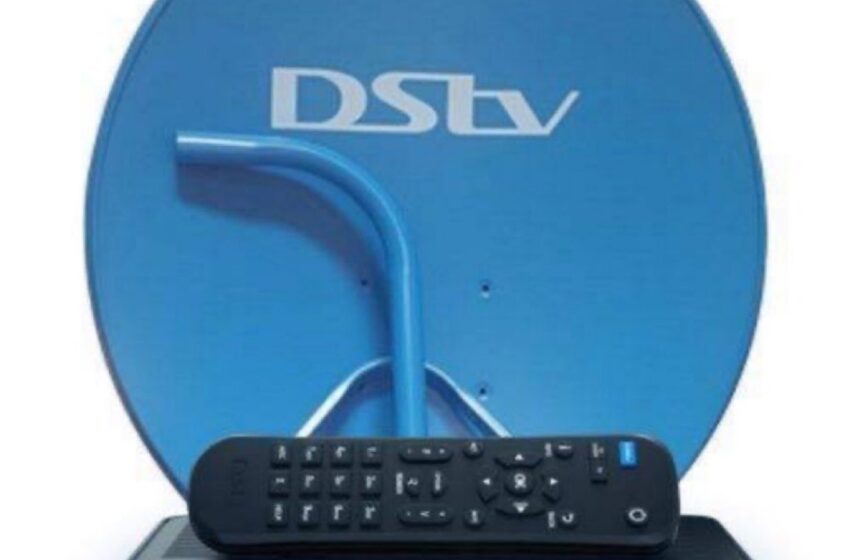MultiChoice dilemma: Why Nigerians are abandoning DStv and GOtv subscriptions

Multichoice Nigeria faces a major regulatory storm as it grapples with a ₦766m data privacy fine amid dwindling subscriber numbers and rising consumer discontent.
“Up till January this year, we were paying 4,850 on our Gotv monthly. But I think around January ending or early February, I was informed by the lady who helps me with it that they have changed it to 5,800 for the same package. It was too high and we no even get light for our side, so why waste money.”
— Francis Blessing, resident of Akure, Ondo State
This frustration expressed by Francis is a common refrain among Nigerians who are increasingly walking away from pay-TV services like GOtv and DStv—services once considered essential. In a nation battling economic headwinds, unreliable electricity, and rising costs of living, monthly TV subscriptions are now viewed by many as unsustainable.
Rising DStv and GOtv Subscription Costs Pushing Nigerians Away
One of the most prominent reasons Nigerians are unsubscribing from DStv and GOtv is the constant upward review of subscription fees. Between 2023 and 2025 alone, MultiChoice increased prices several times, citing inflation, operational costs, and currency devaluation. For instance, a package that cost ₦4,850 just months ago now demands ₦5,800—an increase of over 19%.
To a struggling household, such jumps are not minor. When placed alongside escalating food, transport, school, and rent expenses, television becomes a low priority. Customers are now questioning the value of paying premium fees when the content remains largely repetitive and access is limited by power outages.
Poor Electricity Supply Makes Pay-TV Unappealing
Another key factor is Nigeria’s longstanding electricity crisis. Many households, especially in semi-urban and rural areas, endure long hours or even days without power. For people like Francis Blessing in Akure, renewing a TV subscription means paying for a service they can barely enjoy.
The countdown on DStv and GOtv packages continues regardless of whether users watch or not. With prepaid electricity, diesel, and petrol prices also soaring, keeping a decoder on has become a financial burden many cannot justify.
Inflation, Fuel Prices, and the Cost-of-Living Crisis
The macroeconomic situation is pushing families to cut costs wherever possible. Nigeria’s inflation recently hit a 30-year high, affecting basic commodities. With fuel subsidy removal in 2023 and exchange rate instability worsening in 2024 and 2025, disposable income has shrunk dramatically.
Even the middle class is struggling to maintain former spending patterns. What used to be a basic leisure item is now being re-evaluated. GOtv and DStv are increasingly seen as non-essential, especially when free-to-air channels, YouTube, and social media offer alternative entertainment at lower or no cost.
Streaming Platforms and Digital Alternatives Taking Over
The growth of internet access and mobile data has empowered Nigerians to explore other content platforms. From Netflix and YouTube to TikTok and Showmax (ironically also owned by MultiChoice), viewers can watch content on-demand without fixed monthly fees or hardware limitations.
Younger audiences, in particular, are flocking to digital content. With smartphones, users can watch football highlights, comedy skits, movies, and even live TV. The shift towards mobile-first content consumption is eroding the dominance of traditional pay-TV in Nigeria.
READ ALSO
Explainer: Why MultiChoice keeps increasing DStv and GOtv prices in Nigeria
MultiChoice in crisis: Price cuts, subscriber exodus, and the battle for relevance
MultiChoice, MTN Group… top 10 African businesses owned by South Africans
10 things MultiChoice can do amid rising subscriber loss
MultiChoice history: From Pay‑TV pioneer to facing digital disruption
MultiChoice cuts DStv decoder price by 50% to attract subscribers
MultiChoice 50% price cuts: Has Satellite TV era come to an end?
John Ugbe, other top MultiChoice executives set to be arraigned, see reason
From over N15k to N12k — how MultiChoice reversed DStv, Gotv prices after backlash
Full list: Multichoice increases DStv, GOtv subscription prices… see new rates
“Why I haven’t renew my DStv subscription since May 2024 — Lagos resident speaks
Impact on MultiChoice: Loss of Subscribers
MultiChoice is already feeling the heat. Though exact figures are not public, industry watchers and customer feedback suggest a decline in active subscribers, especially in the GOtv category. The backlash has also come with legal challenges and growing calls for regulatory intervention over “exploitative pricing.”
Some customers complain of poor customer service, rigid payment options, and limited value for money. In this competitive media environment, brand loyalty is weakening—and MultiChoice’s longstanding dominance is now under threat.
What Must Change: Flexibility, Affordability, and Local Relevance
To survive this shifting landscape, MultiChoice may need to:
-
Introduce more flexible, short-term plans (daily/weekly subscriptions).
-
Reduce price hikes or adopt tiered pricing that fits diverse income groups.
-
Improve content quality and local relevance, including more youth-focused programming.
-
Integrate mobile-friendly streaming services that don’t rely on 24/7 electricity.
Consumers are no longer passive—they are demanding control, affordability, and better value.
What next for MultiChoice?
The decision by people like Francis Blessing to cancel their GOtv subscription is not isolated—it’s part of a growing pattern across Nigeria. With rising prices, poor power supply, and better digital alternatives, Nigerians are increasingly saying “no thanks” to traditional pay-TV.
If MultiChoice wants to remain relevant, especially in its largest African market, it must innovate and adapt to the new realities of consumer behavior.

